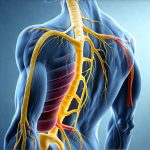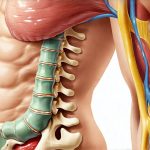Irritable Bowel Syndrome (IBS) and indigestion, often referred to as dyspepsia, are two very common gastrointestinal complaints that frequently overlap, causing considerable discomfort for millions worldwide. While seemingly distinct – one associated with bowel habits and the other with upper digestive distress – their intertwined nature can make diagnosis and management challenging. Many individuals experiencing IBS also report significant symptoms of indigestion, and vice-versa, leading to questions about whether they are separate conditions or different facets of a shared underlying issue. Understanding this connection is crucial for effective symptom relief and improved quality of life, as it informs both diagnostic approaches and potential treatment strategies.
The confusion stems partly from the fact that both IBS and indigestion present with a wide range of symptoms that can mimic other conditions. Indigestion typically manifests as bloating, heartburn, nausea, feeling full quickly after eating only small amounts, and discomfort in the upper abdomen. IBS, on the other hand, is characterized by abdominal pain often relieved by bowel movements, along with changes in stool frequency or form – diarrhea, constipation, or alternating between the two. However, these boundaries aren’t always clear-cut; many individuals experience a combination of both sets of symptoms, blurring the lines and complicating self-diagnosis. The overlap isn’t simply coincidence; research suggests shared physiological mechanisms contribute to the development of both conditions, making them frequently co-morbid.
Understanding the Overlap: Shared Mechanisms & Pathways
The connection between IBS and indigestion is deeply rooted in complex interactions between the gut, brain, and nervous system – often referred to as the gut-brain axis. This bidirectional communication pathway influences various aspects of digestion and gastrointestinal function, and disruptions along this axis are increasingly recognized as central to both conditions. One key factor is visceral hypersensitivity, an increased sensitivity to normal sensations in the gut. In individuals with IBS or indigestion (or both), even mild amounts of gas or muscle contractions can be perceived as painful or uncomfortable. This heightened perception can amplify symptoms and contribute to chronic discomfort.
Another contributing factor is altered gastrointestinal motility – the speed at which food moves through the digestive tract. Dysfunction in this process can lead to a variety of problems, including bloating, constipation, diarrhea, and heartburn. In indigestion, delayed gastric emptying (food staying in the stomach longer than it should) is common, while IBS can involve either accelerated or slowed gut transit. Furthermore, low-grade inflammation within the gut lining may play a role, even if traditional inflammatory markers aren’t significantly elevated. This subtle inflammation can disrupt normal digestive processes and contribute to symptom development. It’s important to remember that these are often interconnected; altered motility can lead to bacterial overgrowth which then contributes to low-grade inflammation, creating a vicious cycle. Considering the impact of gut health, exploring the connection between IBS is crucial for understanding this interplay.
Finally, psychological factors such as stress, anxiety, and depression have been consistently linked to both IBS and indigestion. These factors can influence gut function through the gut-brain axis, exacerbating symptoms and making it harder to manage them effectively. It’s not that these conditions are “all in your head,” but rather that psychological distress can profoundly impact physical health, particularly within the digestive system. Recognizing the connection between overthinking and IBS can offer valuable insights for managing these conditions.
Diagnostic Challenges & Approaches
Diagnosing both IBS and indigestion can be challenging because there isn’t a single definitive test for either condition. Diagnosis often relies on symptom assessment and ruling out other potential causes – such as celiac disease, inflammatory bowel disease (IBD), or gastric ulcers. For IBS, the Rome IV criteria are commonly used, which emphasize characteristic symptoms like abdominal pain related to defecation, along with changes in stool form or frequency. However, these criteria can be insufficient when patients present with overlapping symptoms of indigestion.
Indigestion diagnosis is even more complex, often relying on a process of exclusion. Doctors will typically inquire about dietary habits, medication use, and lifestyle factors, as well as performing tests to rule out structural abnormalities like Helicobacter pylori infection or peptic ulcers. Endoscopy – inserting a small camera into the esophagus and stomach – may be recommended in some cases. The challenge lies in differentiating functional dyspepsia (indigestion without an identifiable organic cause) from other conditions with similar symptoms. A thorough medical history, physical examination, and appropriate testing are crucial for accurate diagnosis. Understanding bowel irregularities is essential in the diagnostic process.
A collaborative approach between the patient and healthcare provider is essential. Keeping a detailed food diary can help identify potential trigger foods or patterns related to symptom flare-ups. It’s also helpful to note any correlation between stress levels and digestive symptoms. Many practitioners now advocate for a functional medicine approach, which focuses on identifying underlying imbalances and addressing them through dietary changes, lifestyle modifications, and targeted supplementation.
Exploring Dietary Strategies
Diet plays a significant role in managing both IBS and indigestion. There isn’t a one-size-fits-all diet, as sensitivities vary greatly from person to person. However, several general principles can be helpful. A low FODMAP (Fermentable Oligosaccharides, Disaccharides, Monosaccharides and Polyols) diet has been shown to reduce symptoms in many people with IBS. This involves temporarily eliminating foods high in these carbohydrates that are poorly absorbed by the gut and fermentable by bacteria, leading to gas and bloating.
- Common high FODMAP foods include: onions, garlic, apples, pears, wheat, dairy products (lactose), and certain legumes.
- Implementing a low FODMAP diet is best done under the guidance of a registered dietitian to ensure nutritional adequacy.
- A phased approach – elimination followed by reintroduction – helps identify specific trigger foods.
For indigestion, identifying food intolerances or sensitivities is also key. Common culprits include: spicy foods, fatty foods, caffeine, alcohol, and carbonated beverages. Eating smaller, more frequent meals can reduce the burden on the digestive system and minimize symptoms. Mindful eating practices – paying attention to hunger cues and savoring each bite – can also improve digestion. It’s important to consider food combining as a potential factor in digestive discomfort.
The Role of Stress Management Techniques
Given the strong connection between psychological factors and gastrointestinal health, stress management is a crucial component of managing both IBS and indigestion. Chronic stress can disrupt gut motility, exacerbate visceral hypersensitivity, and worsen inflammation. Numerous techniques can help reduce stress levels and promote digestive well-being:
- Deep breathing exercises: Simple diaphragmatic breathing can activate the parasympathetic nervous system (the “rest and digest” response), calming the body and reducing anxiety.
- Mindfulness meditation: Regularly practicing mindfulness can increase awareness of bodily sensations, helping individuals better cope with discomfort and reduce reactivity to symptoms.
- Yoga and tai chi: These mind-body practices combine physical movement, breathing exercises, and meditation to promote relaxation and improve overall well-being.
- Cognitive Behavioral Therapy (CBT): CBT can help identify and change negative thought patterns that contribute to stress and anxiety.
Investigating Emerging Therapies & Future Research
Research into the link between IBS and indigestion is ongoing, leading to promising new therapies. Gut microbiome analysis – examining the composition of bacteria in the gut – is gaining traction as a potential diagnostic tool and treatment target. Probiotic supplementation, aimed at restoring healthy gut flora, may offer benefits for some individuals, although specific strains need further investigation.
Another area of interest is visceral neuromodulation – techniques to alter nerve function in the gut. This includes therapies like hypnotherapy and biofeedback, which aim to reduce visceral hypersensitivity and improve gut-brain communication. Pharmaceutical research is also focused on developing new medications that target specific pathways involved in IBS and indigestion, such as serotonin receptors or motility regulators. Understanding gut biofilm can provide deeper insights into gut health. Furthermore, research is also exploring HPV and GI cancers, highlighting the importance of comprehensive digestive health assessments. Ultimately, a holistic approach—combining dietary changes, stress management techniques, and potentially emerging therapies—holds the greatest promise for effectively managing these interconnected conditions. Further understanding of the gut-brain axis and individual variations will be critical for personalized treatment strategies. Considering gut inflammation as a contributing factor is also vital in creating effective long-term management plans.


















